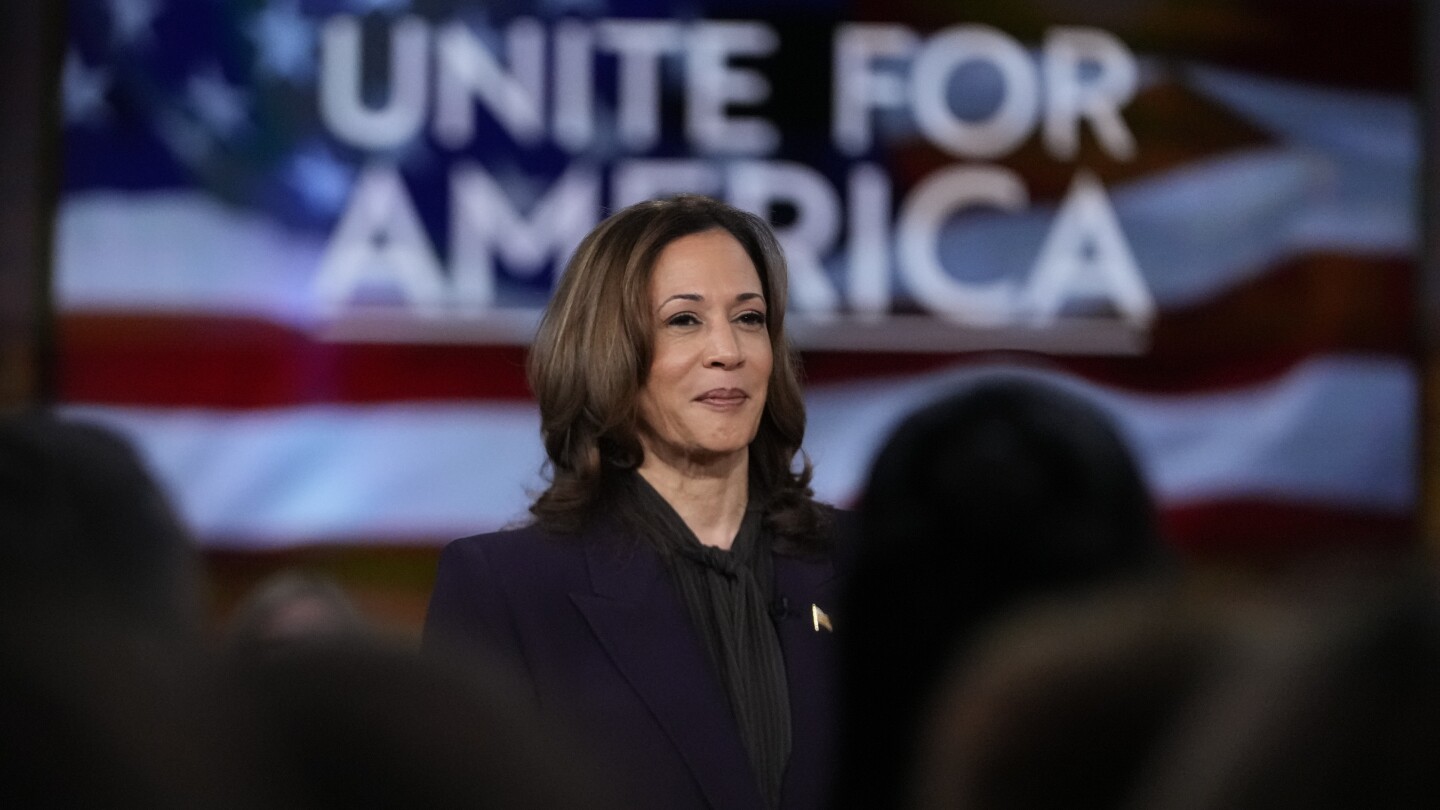NEW YORK (AP) — One presidential candidate is talking up gun ownership and promising tough border security measures. The other vows to cap credit card interest rates and force insurance companies to cover in vitro fertilization.
Which one is the Democrat and the Republican?
The lines that have long defined each party’s policy priorities are blurring as Kamala Harris and Donald Trump seek to expand their coalition in the final weeks of a fiercely competitive election. The contest may well hinge on how many disaffected suburban Republicans vote for Harris and how much of the Democrats’ traditional base — African Americans, Latinos, young people and labor union members — migrates to Trump.
That’s prompting both candidates to take stances that would have once been anathema to their bases, scrambling longtime assumptions about what each party stands for.
“There’s a whole host of issues that draw people to support President Trump, and quite frankly, these are issues that used to be core pillar issues of the Democratic Party,” Tulsi Gabbard, a former Democratic congresswoman from Hawaii who has emerged as a top Trump ally, said in an interview.
Barbara Comstock, who co-chaired Nikki Haley’s GOP presidential campaign earlier this year, is now backing Harris. A former Republican congresswoman from Virginia, she marveled at feeling more aligned with Democrats this year, pointing to Harris’ call for an expanded child care tax credit, support for a tough bipartisan immigration bill and a foreign policy stance that Comstock said was in stark contrast to Trump’s admiration for leaders like Russian President Vladimir Putin.
“As a Republican, I feel like, hey, the Democrats are on my side now,” Comstock said in an interview.
Trump has long bucked the GOP’s traditional values
Of course, Trump has broken from the GOP’s traditional conservative values on issues like trade and foreign policy for much of the past decade. But he has gone further this fall, testing the loyalty of social and small-government conservatives with an agenda that downplays his opposition to abortion and calls for significant government intervention in health care and the economy.
Trump last week said he wanted the federal government to cap credit card interest rates at 10%, a move that quickly irked fiscal conservatives. He said last month he supports a federal law that would force insurance companies to pay for IVF, frustrating some social conservatives who believe the embryos used in the process should be protected. Republicans in Congress have repeatedly voted against the issue.
Gabbard declined to say whether she views Trump as a conservative, instead describing his policy approach as “common sense.”
In addition to IVF, she pointed to the Trump-backed criminal justice reform that reduced sentences for many inmates. She also highlighted a foreign policy philosophy that seeks to avoid U.S. involvement in global conflicts like the Russian invasion of Ukraine.
“A lot of political independents and a lot of Democrats don’t recognize the Democrat Party of today where not a single Democrat in the House or Senate is standing up and saying we need to bring an end to the war in Ukraine,” Gabbard said.
Gabbard and Robert F. Kennedy Jr., both former Democrats, have emerged as the Trump campaign’s most visible national surrogates in his bid to win over undecided Democrats and independents. The campaign has been slow to embrace other would-be allies, including Haley, who issued her first fundraising appeal on Trump’s behalf just last week.
Harris has an organized program to attract Republicans
By comparison, Harris has adopted a more organized program to connect with Republican voters.
In recent days, her campaign has hosted events around abortion rights, border security and small business creation that featured Republican officials. Seven Republicans were granted speaking slots at the Democratic National Convention last month. And a slew of outside groups are spending millions of dollars to help Harris connect with disaffected Republicans, including Republican Voters Against Trump and the Anti-Psychopath PAC.
At the same time, Harris has embraced a much more muscular foreign policy. She has vowed to feature a Republican in her Cabinet if elected. And she is speaking more openly about owning a gun — and her willingness to use it.
“I’m a gun owner,” Harris told Oprah Winfrey late last week.
“I did not know that!” the television star, a Harris supporter, said in surprise.
“If somebody breaks in my house they’re getting shot. Sorry,” Harris responded with a laugh.
Harris’ support for robust U.S. leadership on the global stage has already helped her win the support of more than 100 Republican national security and foreign policy officials who previously served under Presidents Ronald Reagan, George H.W. Bush, George W. Bush, and Trump himself. Former Vice President Dick Cheney is among the notable converts.
Both candidates still largely align with their parties
While Harris and Trump are embracing policies that appeal to the other side, their priorities still largely align with their party’s tradition.
Trump opposes abortion rights and says he is proud that the Supreme Court he transformed with conservative appointees overturned Roe v. Wade. He says abortion laws should be left to states, but he plans to vote this fall to uphold a Florida law that bans all abortions after six weeks of pregnancy, before many women realize they’re pregnant.
The Republican former president has promised the largest deportation in U.S. history and pledges to finish a massive border wall to stop illegal immigration. He calls climate change “a hoax” and has outlined an energy plan that offers strong support for the fossil fuel industry. He wants to expand tax cuts that disproportionately benefit the richest Americans. He opposes virtually all restrictions on gun ownership. And he strongly opposes diversity and inclusion initiatives designed to promote civil rights.
Still, his team believes his policy platform offers much for persuadable Democrats to like.
Trump spokesman Brian Hughes argued that the GOP nominee has appeal among African Americans, Hispanics and labor union members. Notably, the Teamsters Union, which has long supported Democrats, announced last week it would not endorse either presidential candidate, which was viewed as a big win for Trump.
“We are already demonstrably inside their base no matter how hard they insist we’re not,” Hughes said.
Harris, meanwhile, has only just begun to articulate specific policy plans, having been in the presidential race for just eight weeks. But her record and her recent statements make clear that she favors liberal policies in most cases.
Harris supports abortion rights as they were protected under Roe. She backs a ban on assault weapons and wants to extend to all Americans the $35 cap on insulin and $2,000 annual cap on out-of-pocket prescription drug spending enacted for seniors under President Joe Biden. She called for a ban on price gouging for groceries while pushing for a pathway to citizenship for immigrants in the country illegally.
She has pledged bold action to combat climate change, although she says she supports fracking — a shift from her position in 2020. She supports labor unions. And she supports voting rights legislation designed to combat racial discrimination.
“Vice President Harris’ focus on opportunity and freedom speaks to fundamental American values that transcend party lines,” said Harris spokesperson Mia Ehrenberg. “Any American looking to turn the page on Trump’s chaos and division and chart a new way forward for America has a home in Vice President Harris’ campaign.”
Read the full article here





